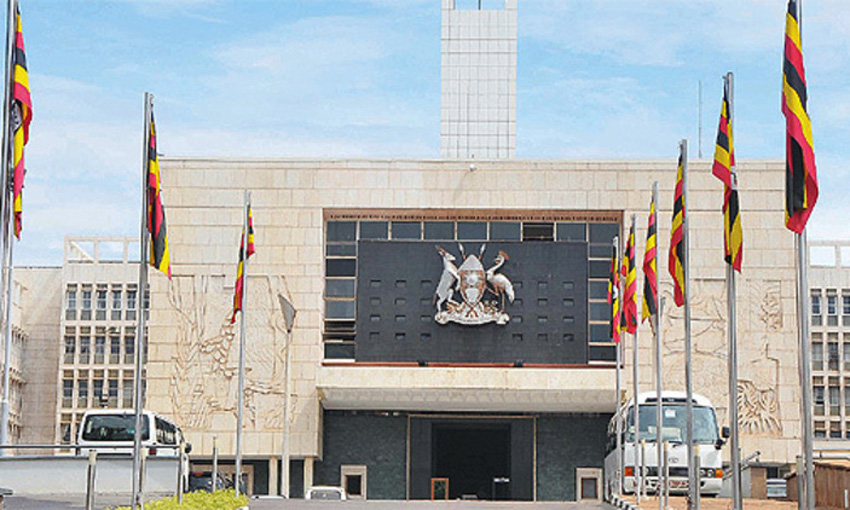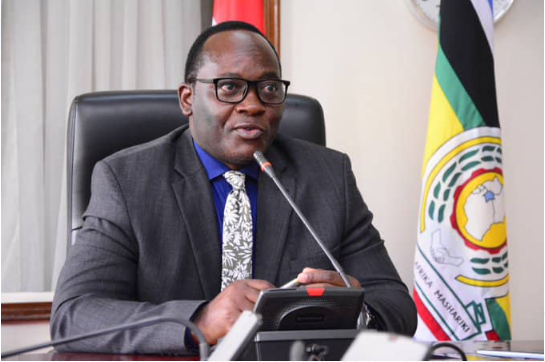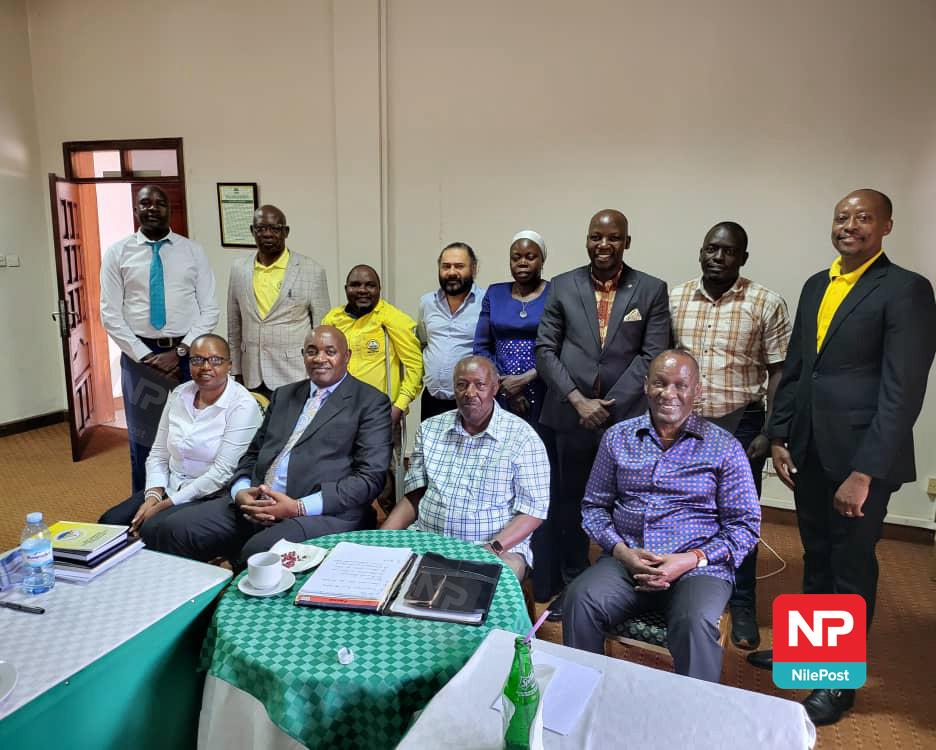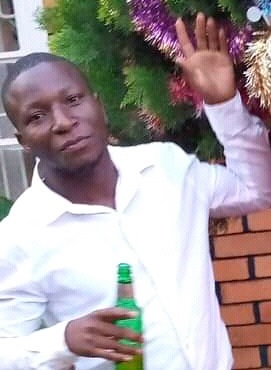In a meeting with members of Busoga Parliamentary Caucus last month, Speaker Rebecca Alitwala Kadaga, said she can never swap her job for that of the Vice President. Kadaga is competing to retain her job now with four other aspirants to be the speaker of the 11th parliament.
Stiff competition seems to be coming from her deput, Jacob Oulanyah the MP for Omoro County who is also the member of the ruling National Resistance Movement-NRM.
The other serious contender is opposition chief whip and also Kira municipality MP Ibrahim Ssemujju Nganda a member of the Forum for Democratic Change -FDC, who has been endorsed by this party to run for Speaker, with Counsel Yusuf Nsibambi for Deputy.
Also indicating their intention to run are one Richard Ssebamala, MP-elect for Bukoto Central for DP, and Juliet Kinyamatama, woman MP for Rakai district.
According to the order of precedence, the vice president is the second most important person in Uganda after the President. The speaker who is the head of the second arm of government; the Legislature is number three in Uganda’s order.
But why would Kadaga reject the position of number two? “One has to work under someone else while being number three; you are a boss of the Second Arm of government. You also risk being sacked anytime the president chooses.”
“Being Vice President means you will be someone’s deputy but while speaker I will be the boss, that is the difference,” Kadaga explained.
No decisions
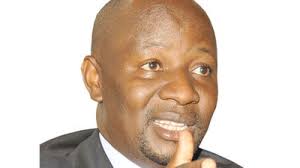
Ssemujju
Kadaga says the vice president also makes no decisions at all and only serves at the mercy of the president. In fact, until very recently, the vice president’s office had no vote in the national budget. But even when it was created, it is within the budget of the Office of the President, whose permanent secretary controls it.
On the other hand, the speaker of Parliament controls both personnel and a Parliamentary budget. The 11th parliament will have 529 Members who are directly under the speaker on top of another about 500 parliamentary support staff.
Article 87(a) of the constitution, creates the parliamentary Commission, a body charged with administering parliament. The Administration of Parliament Act lists the speaker and the deputy, the leader of government business, the Minister of Finance, the leader of the opposition, four other MPs and the Clerk to parliament as the members of the commission.
It is this Commission that draws the budget that runs parliament and also appropriates emoluments of its members and the leaders and staff. In the current financial year 2020/2021, the Commission was appropriated Shs 687billion for both recurrent and development expenditure.
According to two members of parliament who spoke on the condition of anonymity to freely discuss the matter, said that although under the rules governing parliament the speaker of parliament must work under the Commission, the current speaker has amassed a lot of power that she has almost overran the Commission.
“There is what the law says and what actually happens in reality,” one MP told said. “The law lays down the benefits of the speaker and the deputy but what they get is over and above what is provided for in the law.”
Huge budget
According to the 2020/2021 budget, Shs 3.7billion was allocated to the office of the speaker of parliament for travel which according to the structural composition of parliament, is a directorate.
But unlike other directorates, the speaker and her aides are the only persons in the Speaker’s chambers. So whatever money is appropriated to the directorate of the speaker is money exclusively spent by the speaker or at the speaker’s pleasure.
According to the MPs who spoke to us for this story, the speaker’s influence extends beyond the Shs.3.7billion for travel. In the 2020/21 budget Shs.26 billion has been appropriated for general travel abroad. This money is divided among the different committees of parliament. In the end, each committee ends up with about Shs 400million for foreign travel.
However, according to two MPs with direct knowledge of what happens, it is the speaker who approves which MPs is to travel. This is one of the “sweetest” sources of income for MPs. Each day that an MP stays out of Uganda, they are paid USD720 as per diem.
“That’s why many MPs don’t want to be seen to be antagonizing Kadaga because she will not approve their travels which is a cash cow” explained the knowledgeable MP.
“You find the speaker with a heap of papers to approve yet I think it should be the Committee chairperson to decide who among his/her members is to travel.”
On the other hand, the speaker is paid $1,200 per night she spends outside the country. The speaker is also given a significant amount of money for her out of pocket expenses while she is away.
A parliamentary staff familiar with the matter but asked not to be named because she’s not authorized to speak to the media said the speaker is given anywhere between $5,000-10,000 for out of pocket expenses.
“When the speaker travels outside, you expect her to hold meetings with people; she must be in position to buy lunch for those she’s meeting,” the staff told us.
VVIP Treatment
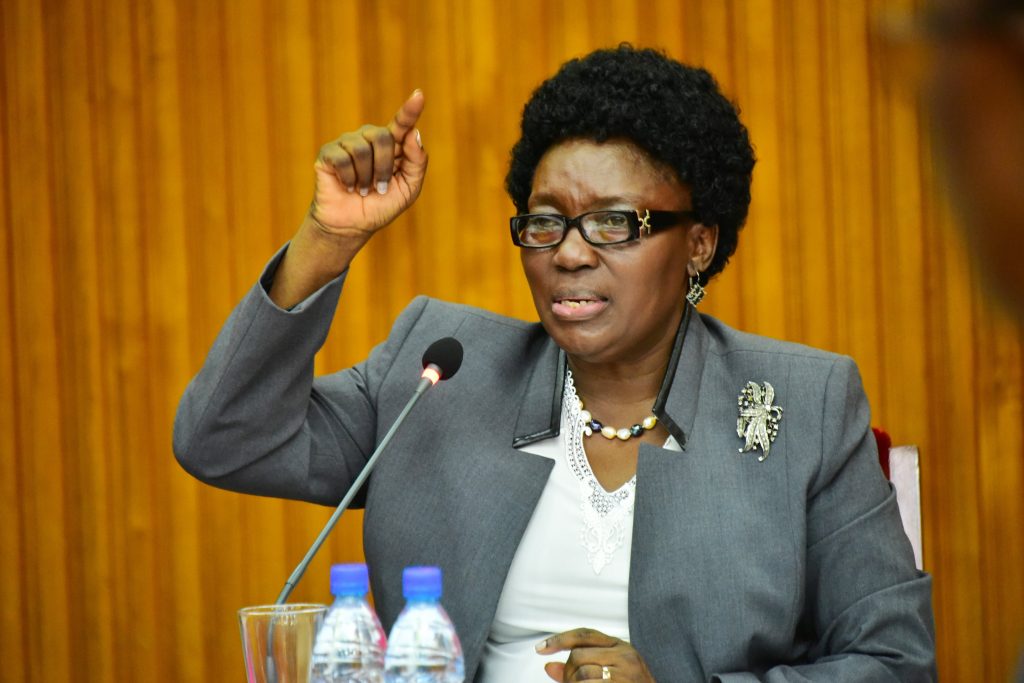
Speaker Kadaga 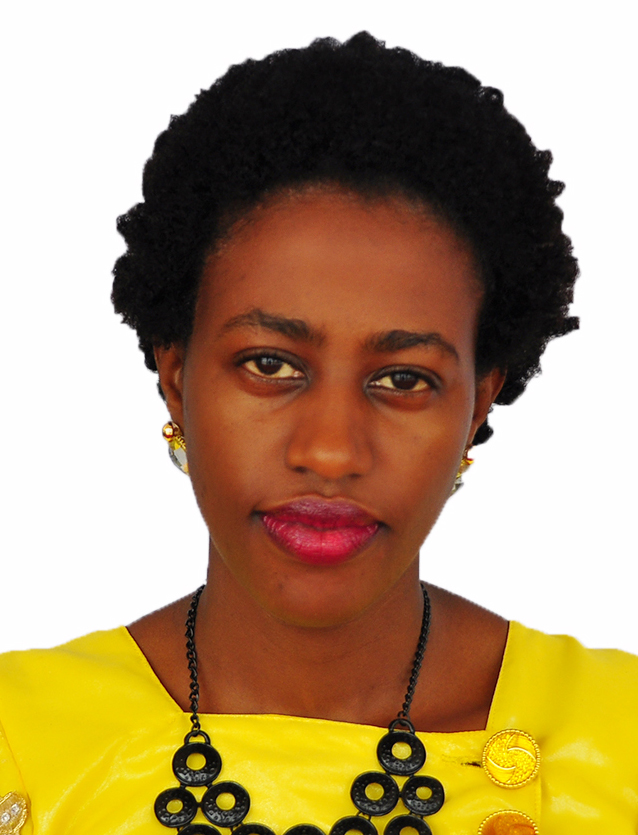
MP Kinyamatama
While travelling inland, the speaker’s movement is also enabled by six vehicles four of which have police guards. On a normal day, the speaker moves with not less than 20 VVIP police protection unit personnel.
While appearing on Capital Radio Saturday political talk show, the Capital Gang recently, Kadaga defended having such a convoy complete with a security detail. She said the world over, leaders are stealthily protected because of the ever-present threat of terrorism.
Other than those cars for her direct benefit, Kadaga also controls another fleet of over 50 Parliamentary cars that include, buses, Coasters, four-wheel drive cars all combined.
“This pool is all under her control as speaker so she has control on how they are used,” an MP told us, adding, “Being that she’s the chairperson of the Parliamentary Commission, those at parliamentary can only silently grumble about what they perceive as nepotism when it comes to human resource issues.” The MP said.
Power
Away from financial, personnel, and equipment, the speaker has also got immense power to determine what issue gets to be discussed in parliament. According to Parliamentary Rules of Procedure, the speaker works hand in hand with the Business Committee to generate the business of parliament.
However, according to some members of the Business Committee, they rarely meet to agree on the business of the house.
“It’s true, the rules give the speaker some power to determine the business of the house but she must work with the business committee,” one of the MP said. “Well, I sit on the Business Committee but I don’t know when it last sat. It’s the clerk who draws up the order paper for the speaker who approves it. You know what is the worst, we can’t even complain about it because we fear to be victimized,”
Candidates in the race speak out
Efforts to speak to speaker Rebecca Kadaga to find out whether the trapping of power and the perks that come with her office have anything to do with why she needs a third term, were fruitless as she didn’t pick nor return our calls to her known number.
Her media assistant Sam Obbo said he wouldn’t answer the same question when we contacted him.
“I really wouldn’t know whether that would be a motivation; you need to ask her,” Obbo said.
For his part, Asuman Basalirwa the MP for Bugiri Municipality who is one of the vocal supporters of Kadaga said there are substantive reasons that explain Kadaga’s candidature other than the benefits that comes with her office.
“She is the best among those she’s contesting with. She’s the person who is impartial while steering the house, she gives equal opportunity to all members regardless of their political persuasion, but the same cannot be said of her deputy,” Basalirwa said.
Liberating the Parliament
Mr. Ssemujju Nganda, said only motivation for standing as speaker of parliament is to liberate the house from the capture it finds itself in.
“I was parliamentary reporter when the late James Wapakhabulo was speaker, he was a good speaker and MPs loved him but he lived a simple life,” Ssemujju said. “His convoy, I think had only two vehicles, unlike our current speaker. I, therefore, want to be a speaker accessible by all MPs.”
Mr. Richard Ssebamala said it would be insulting to tell him that he’s contesting for the office of the speaker for the benefits that it provides.
“Before I went into politics, my compound had about 1billion shillings in terms of cars,” he said. “I’m associated with very successful international businesses, I was district engineer of Iganga district, and really I could afford anything I want. Politics is too serious a thing for us to start playing games with it,” Ssebamala said.
He added that his only motivation is to use the office of the speaker to improve the lives of majority of the people.
“We are seeing the future of our kids in jeopardy, that is why we want to change because politics rules the world,” Ssebamala said. Neither Jacob Oulanyah nor Juliet Kinyamatama were available for a comment. Calls to their known numbers went unanswered.
Retirement benefits
The benefits of being a speaker don’t stop when someone vacates the office, but rather extend even in retirement. According to the Parliamentary Pensions Act as amended in 2011, the speaker gets a monthly allowance of up to 60 percent of the salary of the sitting speaker. They are also given a one-off payment of one year’s salary for the term they spent as speaker. The former speaker also gets a vehicle, domestic servants, medical insurance and security guards among other benefits. All of these are also available to the deputy speaker although the amounts vary a little bit.
Parliament will on May 20 elect who will be the next speaker and the deputy. First time Members of parliament who were elected on the ticket of the ruling National Resistance Movement are currently at the National Leadership Institute at Kyankwanzi where they have been meeting with president Museveni and other party officials. It’s expected that by the time the retreat ends on April 29, the party will have agreed upon who they will be supporting for the speaker.
NRM has a commanding majority of Members of Parliament. Of the 529 MPs who will make up the 11th parliament, 337 belong to NRM while 61 are independents but NRM leaning having participated in party primaries.
The National Unity Party -NUP’s newly elected members have also held their retreat in Jinja and tasked committees to harmonise their position for the speaker and deputy speaker election. Although it is the youngest party in barely half a year, it is now the biggest opposition party in terms of MPs and whose chairman, Robert Kyagulanyi, was runner up in the presidential election, scoring 35 per cent of the vote.
URN
Do you want to share a story, comment or opinion regarding this story or others, Email us at newsdayuganda@gmail.com Tel/WhatsApp........0726054858

